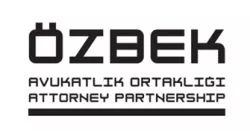The Turkish Data Protection Board ("Board") has announced on 20 April 2018 the summaries of a total of 8 decisions on its official website.
The Board did not disclose its decisions in full but rather shared the summaries of its decisions to guide the practice. Board's decisions only explain the type of violation by the data controller and mention the type of administrative fines or warnings issued by the Board. The decisions do not include the data controller's name nor its sector. The subject matter violations are only identified in general terms, not specifically stating the legal or de facto grounds of violation.
Although it is fair to say that this is a very good step forward for the Board in creating transparency, we strongly believe that for full transparency and guidance to the correct application of the legislation it would be necessary to share the texts of the decisions in full by masking any confidential information related to the controllers.
In any event, the summaries of the Board's decisions give some idea about the Board's approach to data protection and draws the line for certain data processing activities.
1. Late Disclosure of Data Security Breach
Article 12/4 of the Data Protection Law no. 6698 ("Law") states that the data controller should notify any incident resulting in unlawful collection of personal data by third parties to the Board and the data subject in the shortest time period. "The shortest time period" is not identified.
In its decision, the Board decided that, notifying a breach to the Board after 10 months and to the data subject after 17 months, is way overdue and applied an administrative fine pursuant to Article 18 of the Law.
The decision does not state the actual amount of the administrative fine imposed by the Board. As per Article 18 of the Law fines may differ from TRY 5,000 to TRY 1,000,000.
Commentary:
- The notification obligation of the data controller is regulated in the last paragraph of Article 12 of the Law which mainly regulates data security obligation of the controllers and the processors. There is no special provision regarding the breach notification obligation in the Turkish Law and given that Turkish data controllers are not familiar with the breach notification concept at all it is very hard for them to interpret the Law. Thus, a detailed definition of data breaches subject to Article 12/4 needs to be given by the Board and as well as a guidance for the interpretation of "shortest time period" foreseen in the Law.
- It is worth to emphasize that Article 12/4 of the Law is considerably different than the GDPR's Article 33 and Article 34 in respect to (i) the definition of breach, (ii) notification periods, and (iii) notification requirements to the data subjects. Thus, data controllers that are operating in Turkey but may be also subject to the GDPR must pay attention to these differences when working on their incident response plans.
2. Requiring Consent as a Pre-condition for Providing Services and When There Are Other Legal Basis for Lawful Processing
The Board makes it very clear once more that consent cannot be asked as pre-condition to provide services!
In this decision, the Board decided that the data controller violated the Law by asking explicit consent from data subjects to use its services and to become its member. In the summary decision, it is explained that the said controller prevented everyone, who did not consent to processing of his/her data, to have access to its services. The Board also decided that the same data controller violated the Law by asking consent from data subject although other legal basis as listed in the Law were present for processing their personal data.
Unfortunately, the summary of the decision tells us very little about the relevant case as well as the violation by the controller. Thus, we need to guesstimate!
For the sake of our analysis, we assume that this is an online business (eg e-commerce site) as the decision mentions membership. Some processing activities need consent and the service cannot be granted without that activity (e.g. health, condition tracking apps).
But the following questions still need to be answered: "What was this service and did it really need a consent to be provided or was it unnecessary to ask for consent?" "What were other possible legal basis for processing data and why were they not taken into consideration?"
The Board concluded that the actions of the controller violated the general principles for processing under Article 4 of the Law, namely, principle of lawfulness and honesty, as well as the data minimization principle but eventually imposed an administrative fine based as per Article 18 of the Law due to breach of Article 12, ie. for lack of providing necessary administrative and technical safeguards. Considering the decision refers to a violation of data security, the administrative fine must differ from TRY 15,000 to TRY 1,000,000.
However, the violation described in the decision was actually related to unlawful consent. This raises the question: Why did the Board rely on breach of data security obligation if there was an unlawful consent? The controllers need clear guidance from the Board on which actions would be considered breach of security obligations and which ones would be unlawful processing of personal data.
Commentary:
- It is clear that granting a consent for processing of personal data cannot be made a pre-condition for provision of services (eg sales of goods). This must be especially taken into account by the e-commerce companies.
- Different from the GDPR and the Directive, the Law requires explicit consent for processing of all types of data (whether sensitive or not). The personal data can be processed in the absence of explicit consent should certain limited lawful grounds exist as foreseen by the Law. This is a reflection of Article 20 of the Turkish Constitution. Therefore, the controllers struggle interpreting the Law when it comes to asking for consent.
The Board emphasized in different occasions (as well as in its guidelines) that the controllers should not seek for consent if other lawful grounds for data processing exist. The question to be answered now is "Will the Board impose fines to those controllers that obtain consent although it was not needed?"
We think that this question must be answered by also taking into account the Turkish Constitutional Court's decision dated 28 September 2017 numbered 2017/143 where the Constitutional Court rejected the unconstitutionality arguments raised before it regarding relevant articles of the Law and stated that "other lawful grounds for processing the personal data do not affect the very essence of the data subject's right to consent to the processing of his/her personal data."
3. Data Minimization
The Board decided that the data controller violated the Law, specifically the data minimization principle (the processing to be proportionate, relevant and limited to what is necessary in relation to the purposes for which they are processed) when it transferred excessive amount of personal data when only a certain information was asked by the court to be submitted by the data controller.
The grounds for sanction was the breach of data security obligation. In this decision the Board considered the lack of appropriate administrative measures for due compliance with data minimization obligation as a data security breach.
Commentary:
The summary decision does not explain what was asked by the court in this specific case and what was given to it by the controller. We need an important fact: "Why the data transferred given was considered excessive?"
We may speculate that this summary decision may be the one administrative fine that hit the news few months ago about a breach incident occurred in a bank's branch. We read on the newspapers that the Board issued a TRY 30,000 administrative fine to a bank upon the claim of a real person customer of the bank as its branch office sent three months of transaction statements of its customer to the court, instead of just sending the payment record of the disputed financial transaction between the claimant (customer of the bank) and a merchant.
4. Failure to Respond to Data Subject
The Board decided to issue a warning to a data controller, who did not respond to the data subject's information request on time and reminded that it must respond within 30 days following the receipt of the warning notice as per Article 15 of the Law or would be subject to administrative fines.
Article 18 of the Law refers to breach of Article 15 and empowers the Board to impose an administrative fine in the amount of TRY 25,000 to TRY 1,000,000 to those persons who fail to effectuate the decisions of the Board.
Commentary:
This decision clearly sets for the route to follow for data subjects whose requests are left unanswered by the data controllers.
5. Failure to Fulfill Data Subject's Erasure Request
The Board decided that the data controller had the obligation to retain the data for 10 years under the relevant legislation and warned the data controller not to process the data of the old customer other than the purposes of retaining of the personal data in accordance with the general principles for processing as set forth in Article 4 of the Law.
Commentary:
This decision does not provide answers to several questions: "What type of data was it and why the data controller had to retain it for 10 years? Did the data controller retain the personal data more than necessary?"
6. Administrative and Technical Measures
The Board imposed administrative fines to 2 different data controllers for breach of security measures.
In the first case, the data controller was fined because it sent documentation containing personal data to the wrong person who had the same name as the data subject.
In the second case, the data controller's employee accessed the systems, to which he/she was given permission and inquired the data subject's personal data for his/her own use, without a request from the data subject, by misusing the authorization granted to him by the controller. The Board imposed administrative fine to the controller company for failing to implement necessary technical and administrative measures.
The Board stated that it has imposed administrative fines pursuant to Article 18 of the Law. Under the said article fines may differ from TRY 15,000 to TRY 1,000,000.
Commentary:
These cases are real examples for breach of security measures and the Board makes it clear that it will not tolerate such wrongdoings.
7. Processing Against the Data Processing Principles
The Board imposed an administrative fine to the data controller who asked excessive personal data from its customer and decided that the controller had violated the Law as processing of such data was not required by relevant legislation and information requested was unrelated to the purpose of the processing.
The Board further stated that the processing activity violated the principle of lawfulness and honesty as well as the principle of purpose limitation (ie being processed for specified, explicit, and legitimate purposes)
The administrative fine was imposed again based on failure to implement administrative and technical measures to prevent unlawful processing, unlawful access and to procure safeguarding of data. It appears that the Board tends to interpret the relevant provision rather broad (i.e breach of lawful processing as seen in the above decisions under 2 and 3) and prefers to impose administrative fines referred to in Article 18 rather than referring to criminal liability Article 17 which regulates imprisonment penalties.
Commentary:
The decision is important as Turkish controllers usually tend to request personal information beyond what is really necessary.
8. Unlawful Transfer of Personal Data
The Board decided that the data controller breached the Law by writing home address of the project manager to the address section of a contract sample, which was distributed to company's employees through e-mail.
The decision states that this action violated the liability to provide administrative and technical measures.
The sanction refers to administrative fines in Article 18 of the Law.
Commentary:
This is a very interesting decision as to the view of the Board with respect to the breaches of data subject's rights who happen to be an employee of the controller. We need the details of the case in order to make right conclusions, but still the Board makes it clear that the controllers should put necessary administrative measures in place for their internal processing of employee data.
Final note:
It is noteworthy that the Board shared its decisions for the first time with the aim to guide the practice and provide some level of transparency. However, the decisions simply summarize the final decision of the Board and do not provide the specific details regarding the subject matters and the legal reasonings and discussions that led to the final decision.
In short, for now, it would be fair to say that the Board works proactively to create some transparency in relation to its decision-making activities. It also makes a clear statement it will give the priority to protect the data subjects' rights but would rather approach "friendly" to data controllers who are not fully aware of their responsibilities.
26 May 2018
The content of this article is intended to provide a general guide to the subject matter. Specialist advice should be sought about your specific circumstances.


